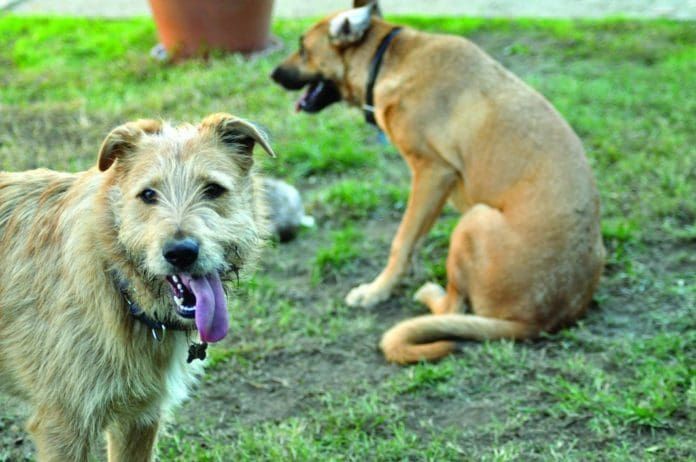[Updated December 3, 2018]
Otto is such a lucky dog: he’s found a best friend. Lena is about the same age as Otto, about his size, and she loves to play all of his favorite games, including “Chase me,” “Let’s bury stuff in the sandbox,” and “I’m going to chew your head off; no, wait, you can chew my head off!”
And I am such a lucky dog owner; Lena belongs to a friend who lives close enough that we can schedule regular playdates for our youngsters, so they can run themselves ragged. Otto doesn’t dig up the vegetables the night after Lena comes over, and he doesn’t bark. After a few hours with Lena, he sleeps so soundly he snores.

Lena’s owner, too, benefits from the playdates. Lena is the teenager in her pack; she shares her home with an arthritic Chihuahua and a prematurely mature four-year-old dog. About 50 times a day, Lena is told to “Knock it off!” – by her owner, the older dogs, and the family cats. She chews, steals, paces, whines, wags, nudges, and nibbles; she’s a restless agitator for more exercise, more interaction, more fun! Except after a playdate with Otto; then and only then does her family get any rest.

The dynamic duo have to be supervised; they play rough, and sometimes something that sounds like a dog fight breaks out for a few seconds. We don’t interfere in these normal, appropriate canine interactions; it’s how they learn to respect each other’s boundaries, and modulate the pressure of their bites. But we check in, and if the playmates seem particularly frazzled, invite them inside for some quiet time. After a power nap, they’re ready to play again, disputes forgotten.
Finding friends for your dog is worth all the work of cultivating relationships with other owners. Dogs are pack animals; they need a social life with their own species for emotional and behavioral health.
Here are some more ideas for finding the perfect canine playmate for your dog!

FINDING A PLAYMATE FOR YOUR DOG: OVERVIEW
1. Facilitate a healthy social life for your dog.
2. Cultivate a mutually beneficial relationship with folks whose dogs get along well with yours; trade dog-sitting?
3. Observe the dogs’ play and impose occasional time-outs.







